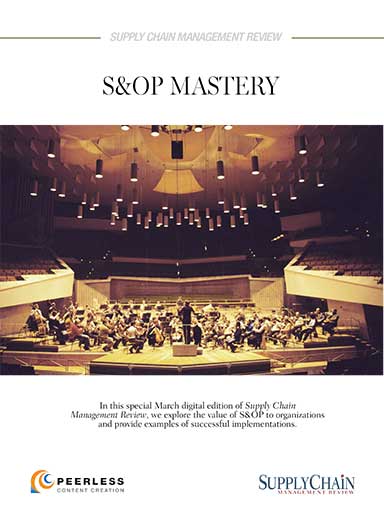Supply chains are facing new pressures to reduce costs, and that tugs at the heart of the procurement operation. At the same time, both consumers and governments are ramping up efforts to adopt sustainability as a core value in businesses.
Yet, a new survey finds that not only is a significant portion of procurement leaders ignoring sustainability efforts, but many are also not even aware there are regulations around sustainability practices.
Sedex, a sustainability software provider, surveyed over 250 senior procurement leaders at North American companies (not Sedex customers) at the end of 2023 and found that 40% are ignoring sustainability in their procurement operations, and 37% said they are unaware of sustainability-related legislation that impacts their businesses.
“These findings are a wake-up call for any business that is serious about its social and environmental performance,” Maurizio Capuzzo, chief marketing officer at Sedex, said in a statement. “Sedex’s research underscores the urgent need for executive teams to realign ESG commitments and operational goals, to truly embed sustainable practices in their organizations.”
The findings come as other recent research, including a report from The Hackett Group. That report, the 2024 Procurement Key Issues, found that cost reduction is now the top priority for procurement professionals, topping 2023’s number-one item, supply continuity. The survey backed up research from Boston Consulting Group that found 65% of executives are prioritizing supply chain and manufacturing costs as the biggest levers for organizations to pull for cost savings.
As companies seek to reduce costs, and increasingly target the supply chain and procurement functions, it may not be a surprise that so many organizations are not considering sustainability when making procurement decisions. The Sedex survey found that 50% “acknowledged that sustainability remains an afterthought, or isn’t considered at all, for business decisions generally.” This, despite the number of public proclamations by companies, 90% of who are in the Russell 1000 that produce annual ESG reports.
Sedex noted that the survey results “highlight the gulf between company commitments and the day-to-day realities of business operations.”
The survey also found that 34% of respondents didn’t recognize any benefits to sustainable practices when measured against short-term procurement goals such as supply continuity and competitive pricing.
Even more concerning, though, is the number of respondents (63%) that believe meeting sustainability targets affects them directly by impacting performance evaluations or compensation.
Capuzzo, though, believes companies need to embrace sustainability initiatives.
“In doing so, companies can unlock powerful tangible and intangible benefits, including supply chain management efficiencies, more effective ESG risk management and an enhanced reputation that supports long-term, sustainable success,” he said.
SC
MR


More Procurement
- 6 Questions With … Autumn Bayles
- Gen AI on Gartner’s Hype Cycle fast track to mainstream adoption
- Procurement making C-suite progress, but work remains
- Boeing turned to Fairmarkit, AI to help land its tail spend
- Whirlpool’s Jennifer Springer to deliver keynote at NextGen Supply Chain Conference
- More Procurement
What's Related in Procurement

 Explore
Explore
Topics
Procurement & Sourcing News
- Strengthening customer fulfillment: Building a strategic stakeholder network
- Trump picks former Wisconsin congressman Sean Duffy for DOT secretary
- Made in Mexico, manufactured by China
- Retail sales see gains in October, reports Commerce and NRF
- Geopolitical readiness in supply chains: Strategic challenges for leaders
- With capacity to spare, logistics real estate demand remains subdued
- More Procurement & Sourcing
Latest Procurement & Sourcing Resources

Subscribe

Supply Chain Management Review delivers the best industry content.

Editors’ Picks





